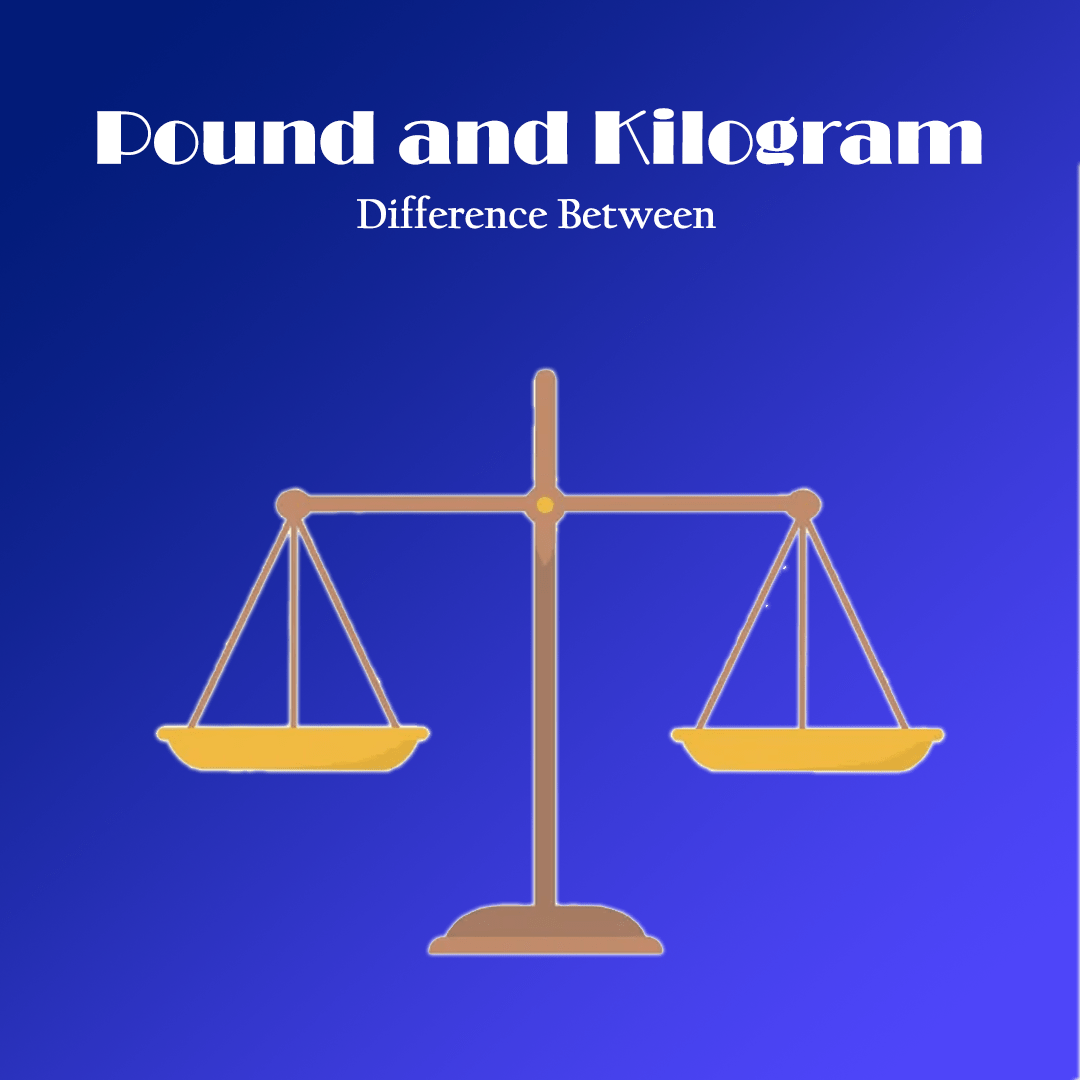Please enter the code we just sent to whatsapp 91-11-46710500 to proceed
Didn't Receive OTP?

Have you ever gotten on a scale and wondered, Why do numbers change when I change the units into kilograms and not pounds? Or have you picked up a recipe in pounds, another one in kilos, and wondered, What is all this? Don’t worry, you’re not alone! We are going to make it simple today by showing what a pound and a kilogram are, in a simple but entertaining manner.
Welcome to the pound and kilogram adventure!
Let us discuss the basics first:
Weight or mass can be measured in a pound (lb) or a kilogram (kg).
Kilograms are commonly used in other countries and mostly those that use the metric system, whereas pound is mostly used in the United States.
Imagine it as two languages to weigh!
Simple Definition:
The mass unit of the metric system is the kilogram (kg).
Pound (lb) is an imperial system that is commonly used in the US and some other nations.
Fun fact:
Originally, the kilogram was referred to a physical object known as the International Prototype Kilogram, a small cylindrical-shaped platinum-iridium cylinder stored in France! These days, it has been defined by a constant of physics, which renders it even more particular.
The size is the major distinction between them.
1 kilogram is equal to 2.20462 pounds.
A kilogram is heavier than a pound.
Example:
Assuming that you have a bag of rice (a 5-kilogram bag in pounds).
5 × 2.20462 = 11.0231 pounds.
And the next time you see kilograms in a recipe or on a scale, you know that it is a greater weight than pounds.
It is all about history and convenience.
In France, in the late 18th century, the metric system was adopted (kilograms, meters, liters) to simplify making measurements and in order to standardize the measurements across nations.
An imperial system (pounds, inches, gallons) is of an ancient British system.
Most part of the world uses the metric system, since it is simpler to compute (all is multiplied by 10).
However, in the US, pounds are still being used since people are familiar with it.
Example 1: Body Weight
Your weight in the US is normally measured in pounds (lb).
Example:
I weigh 120 pounds.
In other countries, such as the UK or Australia, they work in kilograms (kg).
Example:
I weigh 55 kilograms.
Example 2: Food Packaging
In the US, a pack of butter may indicate 1 lb (pound).
The same pack would be marked 500 grams (.5 kg) in Europe.
Example 3: Sports
Weight classes that are used in boxing are usually in pounds in the US and kilograms in other countries.
Suppose you took two apples:
Apple A has a weight of 1 pound (around 0.45 kg).
Apple B is 1 kilogram (approximately 2.2 pounds) in weight.
Of course, Apple B weighs more, as 1 kg is larger than 1 lb.
When you come across kilograms, remember that it was more than pounds.
To change pounds into kilograms:
Divide pounds by 2.2046.
Example:
50 pounds ÷ 2.2046 ≈ 22.68 kg
To convert the kilograms to pounds:
Divide the kilograms by 2.2046.
Example:
10 kilograms × 2.2046 ≈ 22.05 pounds
Knowing the difference between a pound and a kilogram can help you in so many aspects:
Travelling to other nations.
Cooking international recipes.
Knowing scientific information or physical objectives.
Suppose you go to Europe and try to tell how many pounds you weigh. You can say something in kilograms as easily as you ever could!
Fun Factogram about Pounds and kilograms.
Did you also hear that the kilogram was the only unit of the SI that was ever historically defined by a physical object (until recently)? With science, however, it is now associated with a physical constant even more accurately!
So, what’s the big takeaway?
The distinction between pound and kilogram is explained simply:
One pound is smaller than a kilogram.
1 kg ≈ 2.20462 pounds.
Be it the scale you are weighing, your international cuisine, or if you are studying a subject mathematically, knowing this difference will help you know the world around you.
The next time you look at a scale, recipe, or sports stat,s you will think:
Oh, I am familiar with pounds and kilograms!
Be curious, continue converting, and learn the wonderful world of measurements.
Alpha Math offers a game-based learning experience with a unique four-step approach to mastering every concept in math. Schedule a Free Class Now